Landscape Gardening in Highbury: Transforming Your Outdoor Space
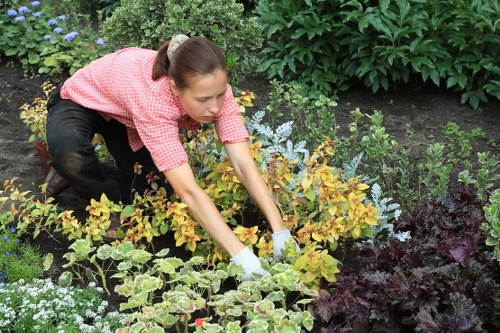
Introduction to Landscape Gardening in Highbury
Landscape gardening in Highbury offers residents a unique opportunity to enhance their outdoor spaces, creating beautiful and functional environments that complement both modern and traditional homes. Whether you're looking to renovate your garden or start from scratch, understanding the fundamentals of landscape gardening in Highbury can help you achieve the perfect outdoor haven.
Highbury, known for its vibrant community and picturesque settings, provides the ideal backdrop for various landscaping projects. From lush green lawns to intricate garden designs, the possibilities are endless. This article delves into the essential aspects of landscape gardening in Highbury, offering insights and tips to help you create a stunning outdoor space.
By focusing on local climate conditions, soil types, and plant varieties, you can ensure that your garden not only looks appealing but also thrives throughout the year. Let's explore the key elements that make landscape gardening in Highbury both rewarding and manageable.
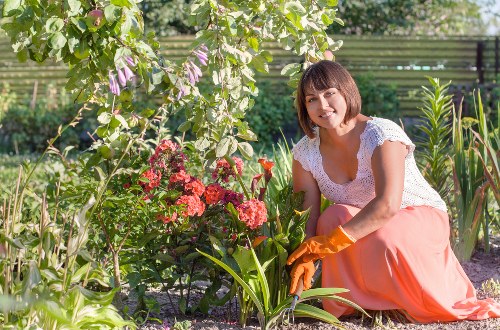
Planning Your Landscape Garden
Assessing Your Space
Before embarking on any landscaping project, it’s crucial to assess your available space. Consider the size of your garden, the amount of sunlight it receives, and any existing features you wish to retain or remove. Highbury gardens come in various shapes and sizes, each presenting unique opportunities and challenges.
Start by measuring the dimensions of your garden and sketching a rough layout. This will help you visualize the placement of different elements such as plants, paths, and seating areas. Think about how you use your outdoor space and what you want to achieve—be it a peaceful retreat, an entertaining area, or a child-friendly playground.
Additionally, take into account any local regulations or restrictions that may impact your landscaping plans. Understanding these guidelines upfront can save you time and resources in the long run.
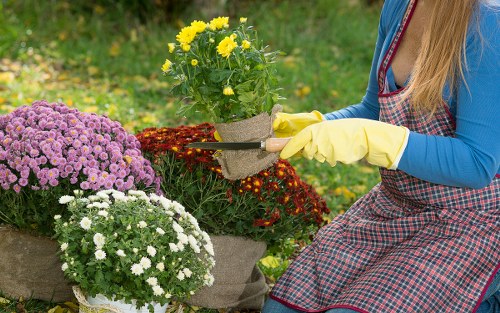
Choosing the Right Plants
Selecting the appropriate plants is fundamental to successful landscape gardening in Highbury. The local climate, soil conditions, and sunlight levels all play a significant role in determining which plants will thrive in your garden.
Consider opting for native plants, as they are well adapted to the local environment and require less maintenance. Native species not only enhance the natural beauty of your garden but also support local wildlife, contributing to a healthier ecosystem.
Additionally, think about the seasonal variations and choose plants that provide year-round interest. Incorporating a mix of flowering plants, shrubs, and trees can create a dynamic and vibrant garden that changes with the seasons.
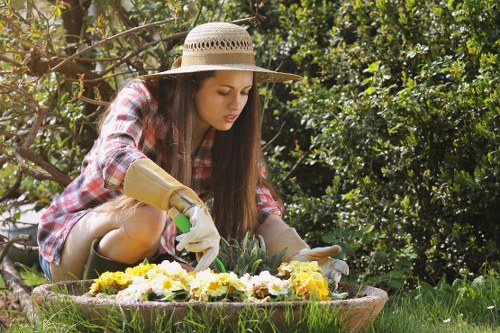
Design Elements in Landscape Gardening
Hardscaping: Paths, Patios, and Structures
Hardscaping elements such as paths, patios, and garden structures are essential components of landscape gardening in Highbury. These features not only enhance the aesthetic appeal of your garden but also provide functional spaces for various activities.
Paths made from materials like stone, gravel, or pavers can guide visitors through your garden, highlighting focal points and creating a sense of flow. Patios serve as excellent spaces for outdoor dining and relaxation, while structures like pergolas, gazebos, and arbors add architectural interest and support climbing plants.
Incorporating hardscaping elements requires careful planning to ensure they complement the overall design of your garden. Consider the scale, style, and materials used to achieve a cohesive and harmonious look.
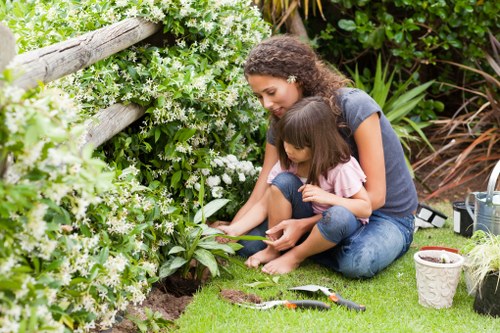
Softscaping: Planting Trees, Shrubs, and Flowers
Softscaping involves the use of living elements such as trees, shrubs, and flowers to create a vibrant and inviting garden space. In Highbury, the diverse range of plant species allows for endless creativity in designing your landscape.
When choosing plants for softscaping, consider their growth habits, maintenance requirements, and visual appeal. Trees can provide shade and structure, while shrubs add texture and depth. Flowers contribute color and fragrance, enhancing the sensory experience of your garden.
Layering different types of plants can create a lush and dynamic environment. Combine tall trees with medium-sized shrubs and low-growing groundcovers to achieve a balanced and visually interesting landscape.
Maintaining Your Landscape Garden
Once your landscape garden in Highbury is established, regular maintenance is essential to keep it looking its best. Proper care ensures that your plants remain healthy and your garden continues to thrive.
Key maintenance tasks include watering, pruning, fertilizing, and pest control. Understanding the specific needs of your plants and scheduling regular maintenance routines can prevent issues and promote growth.
Investing in quality tools and equipment can make gardening tasks more efficient and enjoyable. Additionally, staying informed about best practices and seasonal care tips can help you address any challenges that arise.
Watering and Irrigation
Proper watering is crucial for the health of your landscape garden. In Highbury, the climate can vary, so it's important to adjust your watering schedule based on seasonal demands.
Implementing an efficient irrigation system, such as drip irrigation or soaker hoses, can ensure that your plants receive consistent and adequate moisture. These systems also help conserve water by minimizing evaporation and runoff.
Additionally, consider incorporating rainwater harvesting techniques to utilize natural water sources, promoting sustainability and reducing water consumption.
Pruning and Trimming
Regular pruning and trimming are essential for maintaining the shape and health of your plants. Proper pruning encourages vigorous growth, removes dead or diseased branches, and enhances the overall appearance of your garden.
Different plant species require specific pruning techniques, so it's important to familiarize yourself with the needs of each type. For example, flowering shrubs may need pruning after blooms fade, while evergreen trees benefit from structural pruning during the dormant season.
Using clean and sharp tools ensures precise cuts and reduces the risk of plant damage. If you're unsure about the best practices, consulting a professional landscaper in Highbury can provide valuable guidance.
Fertilizing and Soil Health
Maintaining soil health is fundamental to the success of your landscape garden. Healthy soil provides the necessary nutrients for plant growth and supports a thriving ecosystem.
Regularly fertilizing your plants ensures they receive essential nutrients. Choose fertilizers that are appropriate for your specific plant types and soil conditions. Organic options, such as compost or well-rotted manure, can improve soil fertility and structure naturally.
In addition to fertilizing, incorporating mulch into your garden can help retain moisture, regulate soil temperature, and suppress weeds. Mulching also contributes to soil health by breaking down over time and enriching the soil with organic matter.
Incorporating Sustainable Practices
Sustainability is a key consideration in modern landscape gardening in Highbury. By adopting eco-friendly practices, you can create a garden that is both beautiful and environmentally responsible.
One effective sustainability strategy is the use of native plants, which are well adapted to the local climate and require fewer resources to maintain. Additionally, implementing water-saving irrigation systems and rainwater harvesting can significantly reduce your garden's water consumption.
Composting organic waste, recycling materials, and choosing eco-friendly fertilizers contribute to a greener garden. These practices not only minimize your environmental footprint but also enhance the health and resilience of your landscape.
Creating Wildlife-Friendly Gardens
A wildlife-friendly garden attracts beneficial insects, birds, and other creatures, contributing to a balanced and vibrant ecosystem. In Highbury, creating such a garden involves selecting plants that provide food and shelter for local wildlife.
Incorporate a variety of flowering plants to attract pollinators like bees and butterflies. Installing birdhouses, bat boxes, and providing water sources such as birdbaths can create habitats for different species.
A void of pesticides and chemicals ensures a safe environment for wildlife. By fostering biodiversity, your landscape garden becomes a thriving sanctuary for nature.
Seasonal Considerations
Spring: Renewal and Growth
Spring is a time of renewal in landscape gardening. As the weather warms, new growth emerges, and flowers begin to bloom. Highbury gardeners can take advantage of this season to plant annuals, perennials, and early bloomers.
Spring maintenance includes clearing debris, preparing soil beds, and starting new plantings. It's also an ideal time to install mulch and compost to enrich the soil for the upcoming growing season.
Additionally, spring is the perfect time to assess and repair any garden structures, ensuring they are ready for use throughout the year.
Summer: Maintenance and Enjoyment
Summer in Highbury brings long days and the height of plant growth. It's crucial to maintain your landscape garden by ensuring adequate watering, especially during hot and dry spells.
Regular weeding, pruning, and deadheading flowers keep the garden tidy and encourage continuous blooming. Implementing shade solutions, such as pergolas or shade cloths, can protect plants from intense sunlight and extend their growing season.
Summer is also a great time to enjoy outdoor activities in your garden, whether it's hosting gatherings, relaxing on a patio, or simply soaking in the beauty of your surroundings.
Autumn: Preparing for Winter
As autumn arrives, it's time to prepare your landscape garden for the colder months. Highbury gardeners should focus on tasks that protect plants and ensure a smooth transition into winter.
Pruning deciduous trees and shrubs helps remove dead or weak branches, promoting healthy growth in the spring. Clearing fallen leaves and debris prevents fungal diseases and maintains garden aesthetics.
Adding a layer of mulch around the base of plants insulates the soil, retaining moisture and regulating temperature. It's also important to store or winterize garden tools to keep them in good condition for the next season.
Winter: Rest and Planning
Winter is a period of rest for many plants, allowing them to conserve energy and prepare for the next growing season. However, landscape gardening in Highbury during winter doesn't mean taking a complete break. It's a great time to plan future projects and make necessary repairs.
Inspect garden structures, paths, and irrigation systems for any damage that may have occurred during the colder months. Planning new plantings, designing garden layouts, and researching plant varieties can set the stage for a successful spring.
Additionally, using winter-resilient plants can add interest and color to your garden during the dormant season.
Hiring Professional Landscape Gardeners in Highbury
Benefits of Professional Services
While DIY landscaping can be fulfilling, hiring professional landscape gardeners in Highbury offers numerous benefits. Professionals bring expertise, experience, and specialized skills to ensure your garden is designed and maintained to the highest standards.
Professional landscapers can provide personalized design plans that reflect your vision and cater to the specific conditions of your garden. They have access to quality materials, tools, and a network of suppliers, ensuring that your landscaping project is executed efficiently and effectively.
Moreover, professionals can offer ongoing maintenance services, saving you time and effort while ensuring your garden remains pristine throughout the year.
Choosing the Right Landscape Gardener
Selecting the right landscape gardener in Highbury involves careful consideration of several factors. Begin by researching local professionals with a solid reputation and a portfolio of completed projects that align with your style preferences.
Check reviews, request references, and assess the quality of their previous work. It's also important to ensure that the landscaper is licensed, insured, and adheres to local regulations and standards.
Discuss your project goals, budget, and timeline with potential landscapers to ensure they can meet your expectations. Clear communication and a shared vision are key to a successful partnership.
Cost Considerations
Landscape gardening in Highbury can vary in cost depending on the scope of the project, materials used, and the level of expertise required. It's important to establish a clear budget before starting and discuss it with your landscaper to ensure transparency.
Obtain detailed quotes that outline all aspects of the project, including design, materials, labor, and any additional services. This helps prevent unexpected expenses and allows you to make informed decisions about your landscaping investments.
Investing in quality landscaping not only enhances the beauty and functionality of your outdoor space but can also increase the value of your property in the long run.
Trends in Landscape Gardening in Highbury
Sustainable and Eco-Friendly Designs
One of the prominent trends in landscape gardening in Highbury is the emphasis on sustainability and eco-friendly designs. Homeowners are increasingly prioritizing gardens that minimize environmental impact and promote biodiversity.
Incorporating native plants, using recycled materials for hardscaping, and implementing rainwater harvesting systems are popular choices. These practices not only conserve resources but also create resilient gardens that can adapt to changing climate conditions.
Additionally, xeriscaping, which focuses on water-efficient landscaping, is gaining traction as a practical and environmentally responsible approach to garden design.
Outdoor Living Spaces
Outdoor living spaces are becoming integral to modern landscape gardening in Highbury. Creating functional areas for dining, lounging, and recreation extends the usability of your garden and enhances your overall outdoor experience.
Features such as outdoor kitchens, fire pits, comfortable seating, and ambient lighting contribute to a welcoming and enjoyable environment. These elements allow residents to fully appreciate their landscape garden while entertaining guests or enjoying quiet moments.
Designing versatile and adaptable outdoor spaces ensures that your garden remains a valuable extension of your home throughout the year.
Low-Maintenance Gardens
With busy lifestyles, many homeowners in Highbury are seeking low-maintenance garden solutions that require minimal upkeep while still providing beauty and functionality.
Strategies for achieving a low-maintenance garden include selecting perennial plants that return year after year, using groundcovers to reduce weeds, and incorporating efficient irrigation systems. Additionally, designing with simplicity and functionality in mind can streamline maintenance tasks.
By prioritizing low-maintenance features, you can enjoy a gorgeous landscape garden without the time and effort typically associated with extensive gardening.
Conclusion
Landscape gardening in Highbury offers a rewarding way to enhance your outdoor living spaces, blending beauty with functionality in a manner that reflects your personal style and meets your lifestyle needs.
By carefully planning your garden, selecting the right plants, incorporating essential design elements, and maintaining your landscape with sustainable practices, you can create a stunning and enduring outdoor environment.
Whether you choose to embark on this journey yourself or enlist the expertise of professional landscapers, the possibilities for transforming your Highbury garden are endless. Embrace the art of landscape gardening and watch your outdoor space flourish.
Contact us today to start your landscape gardening project in Highbury and turn your garden dreams into reality!